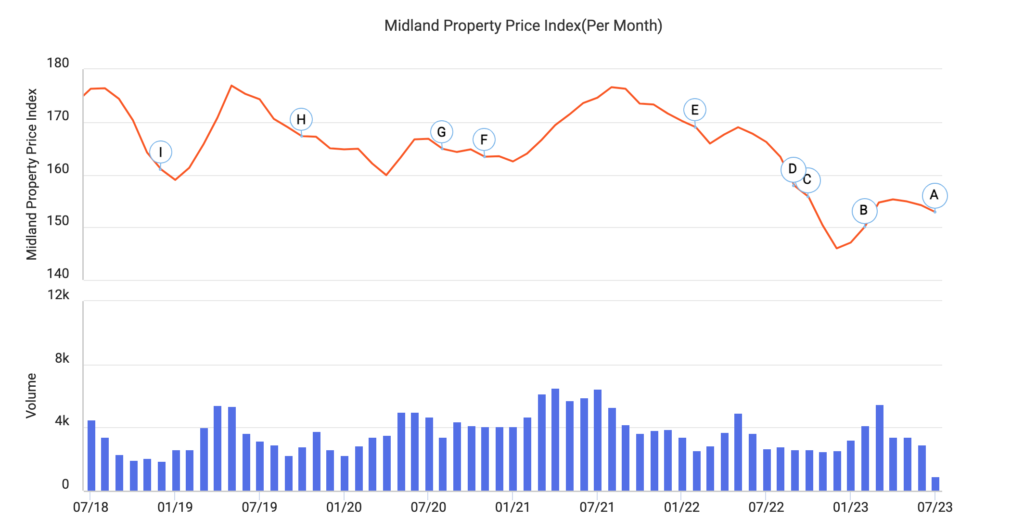Hong Kong, a global city renowned for its lofty skyscrapers and sky-high property prices, is in the grip of a property slump. From its dizzying zenith in May 2019, property prices have taken a 20% decline. In a bid to address the freefall, the government has pulled out a new card from its deck – the relaxation of mortgage lending restrictions. Can these new measures truly rescue Hong Kong’s ailing property market, or will it merely delaying an inevitable crash?
In July, the Hong Kong Monetary Authority (HKMA) announced easing mortgage lending restrictions. The maximum mortgage ratio for self-occupied residential properties priced at HKD 15 million or below has been increased from 60% to 70%, a notable relaxation that underlines the government’s commitment to stabilize the real estate sector.
Skepticism on the New Measures
One question that springs to mind is whether such measures will indeed stimulate the market. The general consensus among multiple investment banks, including giants like JPMorgan and Citigroup, is that the impact will be limited. The current down payment requirements, do not appear to be the main reason behind the declining transaction volumes. The larger issue, they argue, is the gloomy economic outlook held by potential buyers.
An interesting counterpoint comes from Goldman Sachs, who have adjusted their property price prediction for the year from a 10% drop to a 5% rise. They suggest increasing mortgage loans and real estate transactions could boost bank stock prices.
Goldman Sachs argues that easing Loan-to-Value (LTV), restrictions could stimulate the stagnant real estate market. As property prices have fallen and public income has risen, buyer affordability has been somewhat restored. Their prediction hinges on the belief that the loan-to-value ratio of borrowers will increase over the next 6 to 12 months. For 2024 to 2026, they predict an annual growth of 4%.

A Steady or Slippery Future?
But what led to this sharp dip in Hong Kong’s property prices?
Three key negative factors have played a pivotal role. Firstly, developers’ eagerness to offload new developments at discounted prices has put downward pressure on the secondary market. Secondly, the U.S. interest rate hikes have increased borrowing costs, discouraging transactions. Lastly, the ongoing wave of emigration from Hong Kong has increased supply in the secondary market, adding further downward pressure on prices.
However, Hong Kong’s property market has its inherent strengths too. Despite the headwinds, the city’s housing supply is severely inadequate, with a vacancy rate of just 4.4%. With this level of demand, selling property isn’t too challenging, and owners don’t necessarily have to cut prices to attract buyers drastically.
Despite economic uncertainties, the unemployment rate in Hong Kong stands at a modest 3%, suggesting the economic situation isn’t as dire as some might believe. In fact, the relatively robust economy, coupled with a high demand for housing, is why the rental market hasn’t significantly plummeted in line with property prices.
In addition, one of the major factors suppressing the property market—the U.S. interest rate hikes—is nearing its end, with estimations that it will peak after two more 0.25% hikes. Once this cycle concludes, the broader investment environment is expected to improve, with both stock and bond markets benefiting. To that end, many believe even though Hong Kong’s property market may not see a significant surge in the immediate future, it’s also unlikely to experience a more dramatic decline.




